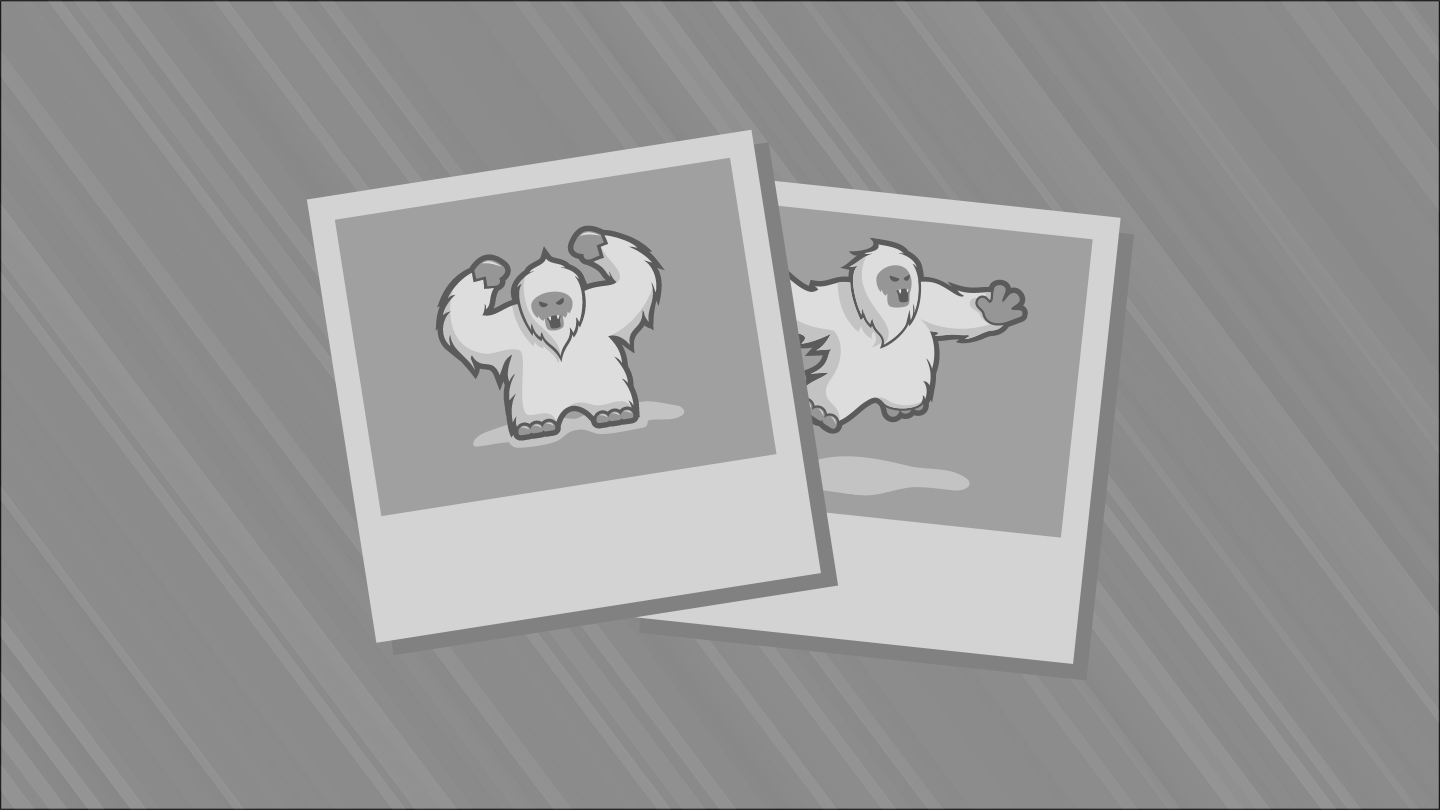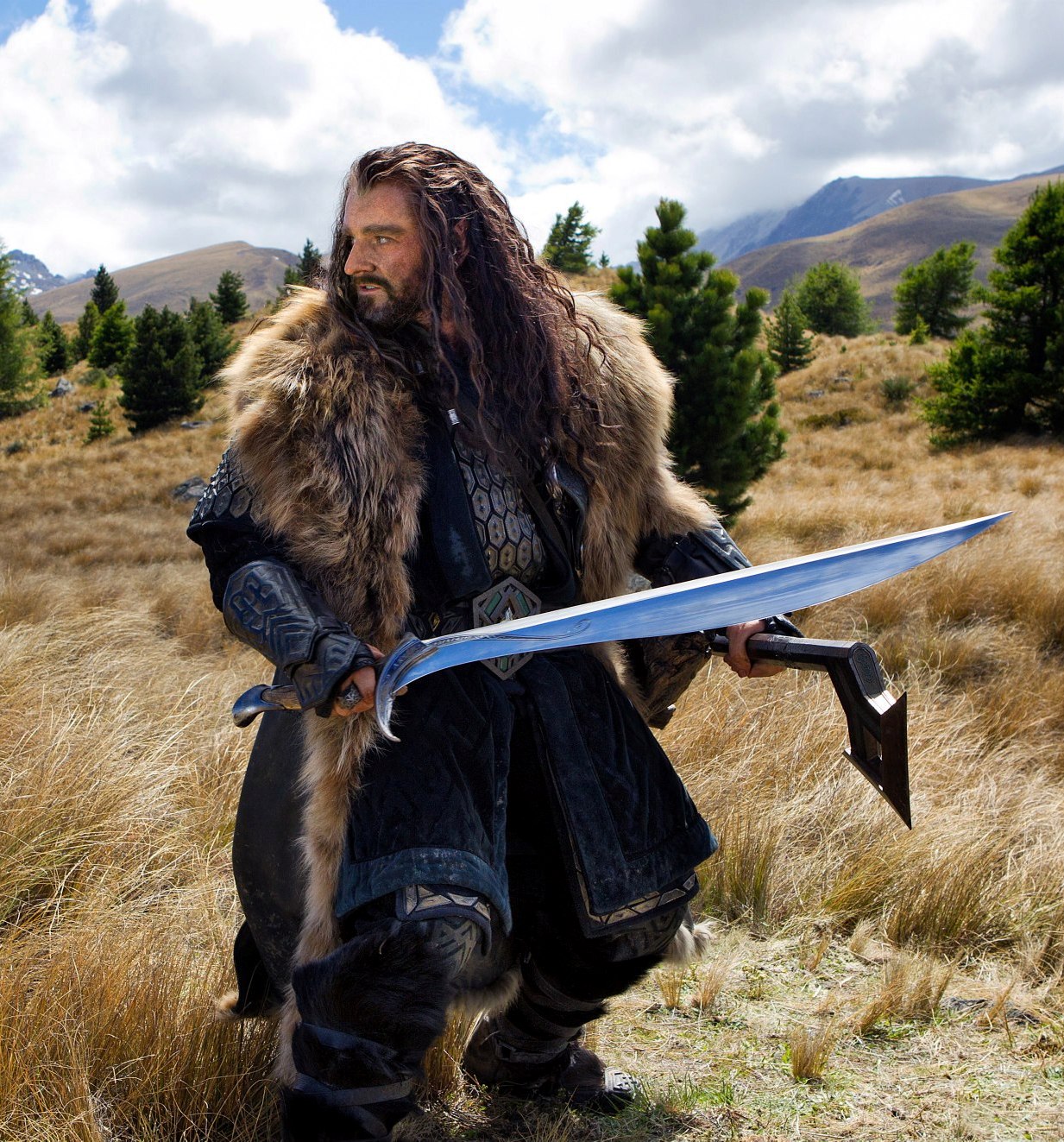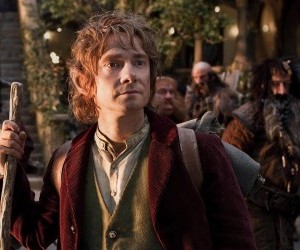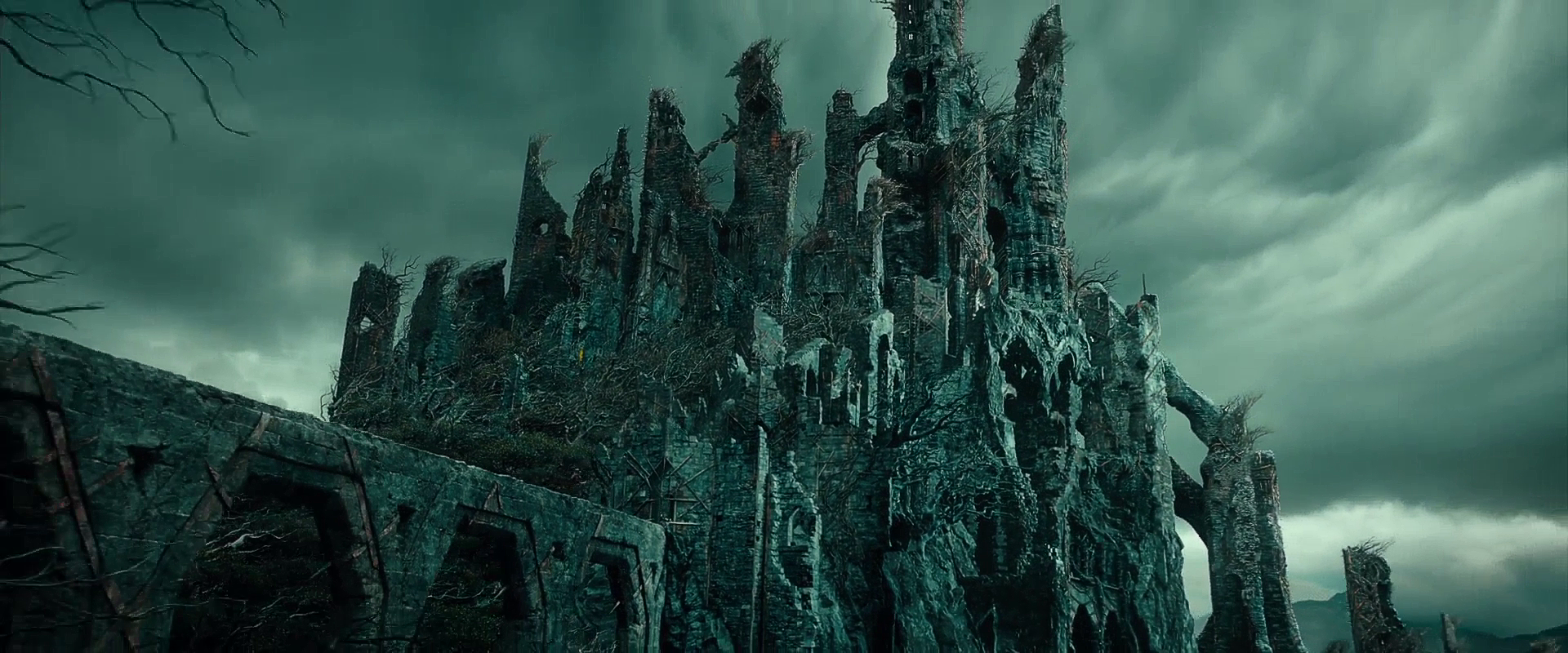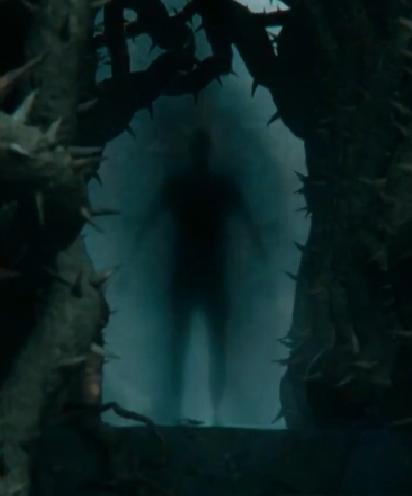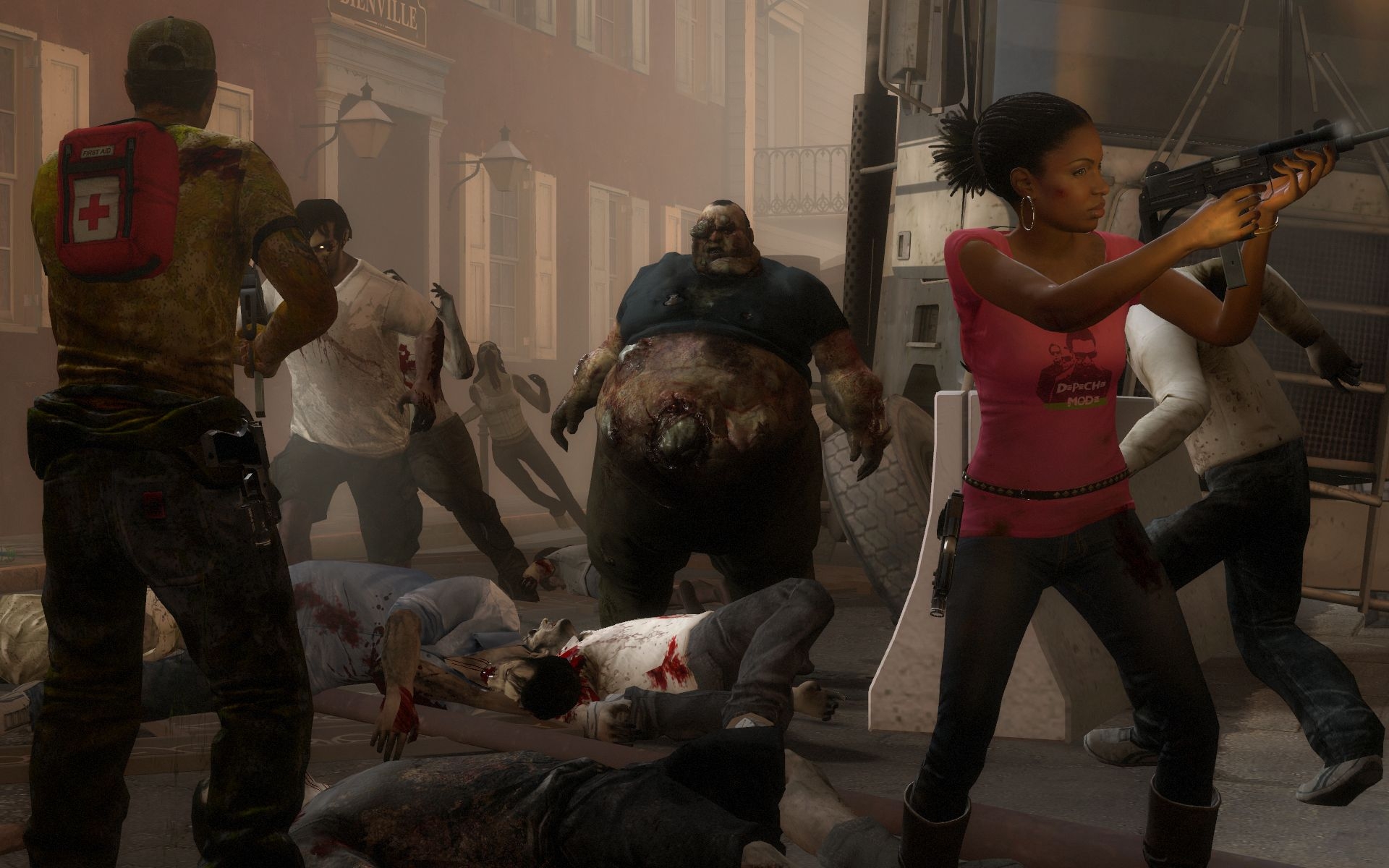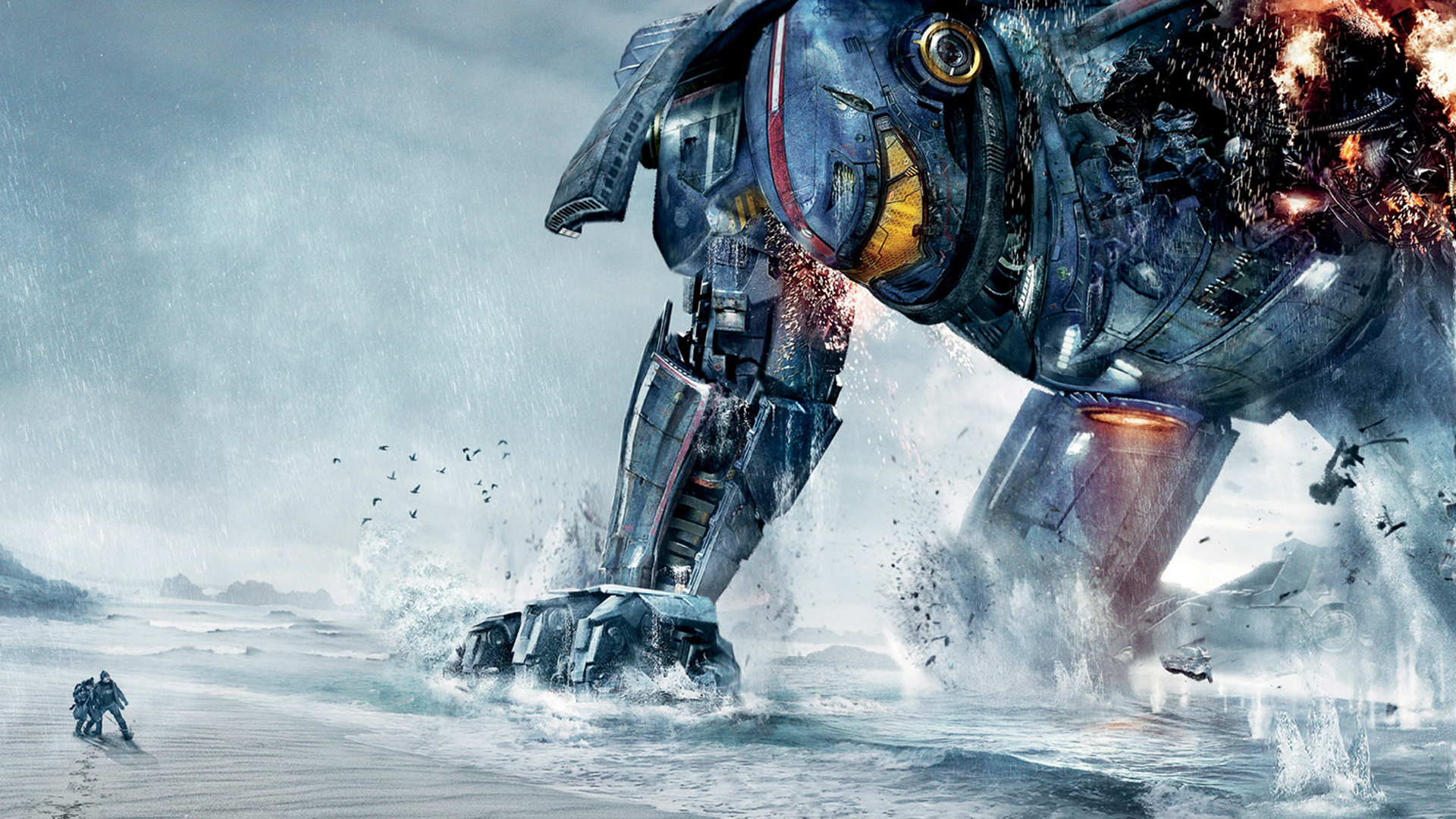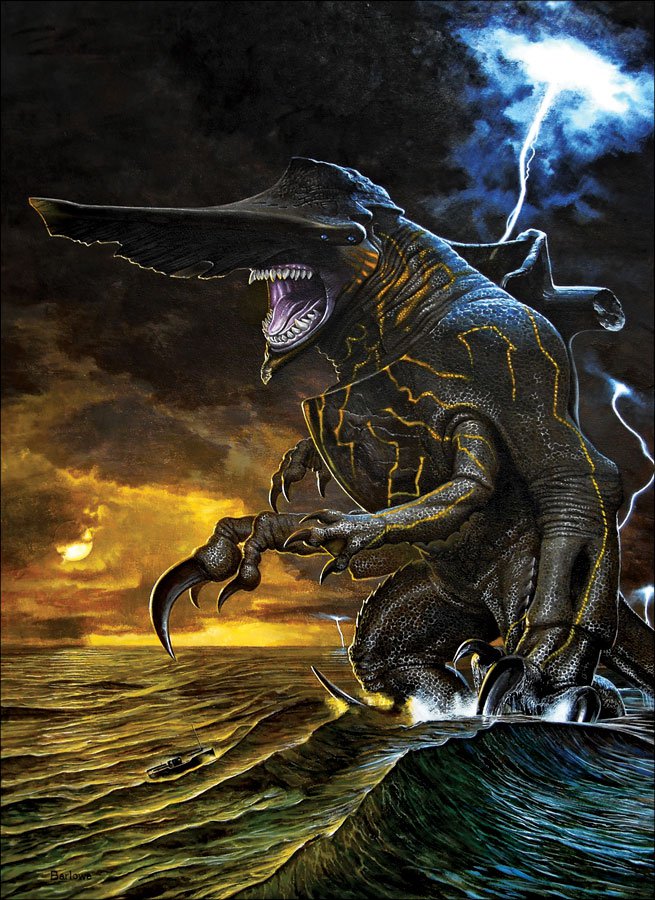So I recently went with some friends to watch the newest installment of The Hobbit, subtitled The Desolation of Smaug. Following the adventures of Bilbo Baggins (played by Martin Freeman) and the thirteen dwarves and one rather cranky old wizard, they reached their location, but their journey was still very far from over. So, being a sequel directed by Peter Jackson, this movie obviously has to be great, right? Perhaps even better than the first one?
Erm... that depends on who you ask. Personal opinion? ... First one was better.
Okay, who fed beans to the gigantic dragon again?
Don't get me wrong - it's not a bad movie by any standard. The scenery is breathtaking, the characters are likeable and memorable (though some dwarves aren't as memorable - a necessary sacrifice), the plot is for the most part well-constructed. However, it feels like Peter Jackson is just overdoing it on far too many things. Too much CG, too much suspension of disbelief, too much unnecessary character development, too many battles. It just felt like that Peter Jackson was tacking on far, far too many unnecessary things in the movie that could easily be cut out and wouldn't do a bloody thing overall. The first movie already had a good deal of unnecessary stuff, but this one is taking the cake and running with it.
I don't care if you have a good reason lore-wise to be in here, GTFO LEGOLAS.
One of the biggest examples of unnecessary padding is the inclusion of Legolas and the original character Tauriel, played by Evangeline Lily of Lost fame. There's something of a love triangle that develops between one of the dwarves, Fili, and the elves Legolas and Tauriel. I'll be blunt - this whole love triangle serves as nothing more than a fake attempt at drama, and the inclusion of Legolas has to be one of the most cynical moves I've seen in movies yet. Although Legolas has a good excuse to be here (he's the son of Thranduil, the Elvenking in the books), he was utterly unnecessary. Every scene he shows up could be labeled or subtitled, 'Gratuitous Fangirl Pandering', because that's essentially what it is. He's there only to act like a racist dick and do cool stuff.
As for Tauriel... by the gods, could one find a more cliched character?! A princess who dreams of seeing the world beyond her castle, starts having a forbidden relationship (said love interest of hers is not only a pauper, but a dwarf, adding racism to the mix) and just wants to go out and have adventures? Oh yeah, sure, that hasn't been done A COUPLE TRILLION TIMES ALREADY. The inclusion of Legolas and Tauriel hurt the movie a huge deal and I could not stop thinking how unnecessary both of these characters and their plot was. Maybe it's because I'm a Tolkien fanboy who hates deviation from canon, but I can usually just forget what I read to enjoy a good movie. This, however, I can't swallow.
Thorin, you can either develop in one movie or in three. MAKE UP YOUR MIND.
When we finished the first movie, we saw Thorin finally accepting Bilbo Baggins as an integral part of the company as much as any of the dwarves. It was a touching moment of friendship no doubt. So why in the second movie did we completely backtrack, once again with Thorin thinking of Bilbo as nothing more than a mere 'burglar'? Okay, sure he did seem to respect Bilbo more for the acts he does (praising him when he saved the company's collective arses more than a few times), but all bets are off when they reach the Lonely Mountain. Here, all the character development is thrown out the door as Thorin becomes greedy and wants the Arkenstone enough to treat Bilbo (and maybe the rest of the company) as expendable. To be fair, though, the other dwarves are now calling out Thorin for his callousness, particularly Balin, who was shown to be loyal to him to the very end. Those who know the lore would think that this is the effect of one of the Six Rings of the Dwarves (which inflames greed to unhealthy levels, but this is still stretching it), but for the casual moviegoer... the change is jarring and inconsistent.
Yep, he's still got the Precious.
Now on the flip side, Martin Freeman and Ian McKellan still give us great performances as Bilbo and Gandalf respectively. Bilbo managed to grow some balls since the first movie thanks to all his adventures, but he still remains an adorably dorky kind of guy that one can't help but love. He can be stabbing and slashing at spiders at one moment and tripping over a tree root the next. However, with his possession of the One Ring (not a spoiler at this point, considering the earlier Lord of the Rings movies and how it's shown as a F***ING EVIL THING every single time it appears here), there are some moments where he's possessive over it, and goes on surprisingly vicious murder streaks if something tries to take or claim it... and freaking out afterward, horrified by his brutality. Handled wrong, this would've been too much and probably would've had me rolling my eyes. However, Martin Freeman handles it so well and realistically, I can see Bilbo genuinely snapping then being terrified of not only himself, but the Ring... yet can't throw it away. It goes to show that Martin Freeman is a damn talented actor.
Looks like an excellent summer home.
Gandalf admittedly gets a good deal less screentime in the second movie as he does the first since he often has to run off, but he does the same thing in the books so that can slide. McKellan is pretty much Gandalf to a T, no questions asked, showing his gruff but very intelligent self... and also his very mischievous side as well that he seems to be prone to from time to time. The part about Beorn was particularly funny, though I REALLY wished they added Gandalf trying to tell the story to Beorn and modifying the details until Beorn just throws up his hands and goes, "Oh, gimme a break!!" That might have ruined the tone of the movie, but oh well. Still, Gandalf gets a level in being a dumbass to create more unnecessary drama and give us bigger reveals. If you must go into a dark, creepy, ruined castle that screams 'THIS PLACE IS EVIL!!!' solo, you do NOT essentially blow a trumpet every twenty feet to make sure everyone in the vicinity knows you're there! To be fair, though, Gandalf did pay for it - painfully, I might add - though the whole thing could've been avoided in the first place.
And speaking of Dol Guldur, there was one huge part that I REALLY did not like. Skip this paragraph if you do not want spoilers. No, skip it now because it's a doozy, unless you're a Tolkien fan and already know this or you've already seen the movie. So seriously, skip this paragraph. ... Still here? Okay, so the biggest problem is when Sauron shows up. He shows up as this torrent of darkness and shadows which is rather cool, sometimes taking a somewhat human yet not really form. And this might seem little to you, but... Sauron talks. As in actual, comprehensible words and sentences. Okay, once he started talking, Sauron became a thousand times LESS ominous and scary. Something that talks like that gives us the feeling he's a sentient creature, only a bit more above us rather than the freaking god of darkness that he is. Sure, it's the Black Speech which was designed by Tolkien to sound evil, but... I'm sorry, that just ruined him. If they just kept Sauron's 'speech' to those indistinct whispers that we kept hearing in Lord of the Rings, I'd be absolutely terrified. It would give us the feeling that he is something that cannot be be matched by mortals, cannot be matched by anyone on our level, a distinct feeling of inhumanity that gives us the feeling he is something not natural to the world. But yeah, that was botched.
Slenderman's cousin.
So what's my final opinion of The Hobbit, Desolation of Smaug? Not a bad movie, but definitely not great. In fact, it's rather weak compared to the first movie. There's a lot of other nitpicks I could give as well, but I'm not gonna whine and complain the whole way through. It's a good enough movie, but I seriously hope the third Hobbit will be better.
That's it for now. Thanks for reading, and keep checking for any updates!
